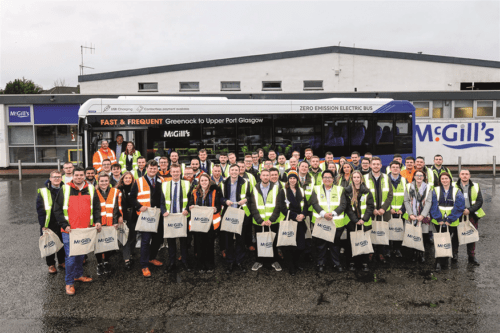In late March, dozens of young and enthusiastic bus people descended on Glasgow for the latest Young Bus Professionals conference. Jonathan Welch reports

In an industry which often bemoans the lack of young people coming in, it’s always refreshing to be reminded that it’s not quite the cliff-edge that some would have you believe. As anyone who was at the Young Bus Professionals (YBP) spring conference will attest, some of the industry’s upcoming stars and young talent showed a keenness to hear from their peers and from well-known industry names, to learn and to network, as well as share tales and swap stories. Despite being far from young, I was
invited along to see first hand how the event helps nurture younger managers and future leaders from around the country with insightful talks, site visits to give a flavour of what is happening nationwide, and group workshops to make sure there’s plenty of audience participation.
This event was the first to be held under the organisation’s new name, a deliberate change from ‘Young Bus Managers Network’ to reflect both the need and the desire to draw in a wider range of industry stakeholders from beyond the four walls of bus operators; as the trend towards partnerships for tech, ticketing and infrastructure grows, and as franchising looms on the horizon for more and more areas of the country, the importance of ensuring that all stakeholders are able to come together and grow together has not been lost on the event’s organisers. Members from local authorities, industry suppliers and partners are encouraged. It’s probably important to note too that the term ‘young’ continues to be used quite loosely, though most delegates are in their 20s and 30s.
[…]
By subscribing you will benefit from:
- Operator & Supplier Profiles
- Face-to-Face Interviews
- Lastest News
- Test Drives and Reviews
- Legal Updates
- Route Focus
- Industry Insider Opinions
- Passenger Perspective
- Vehicle Launches
- and much more!


